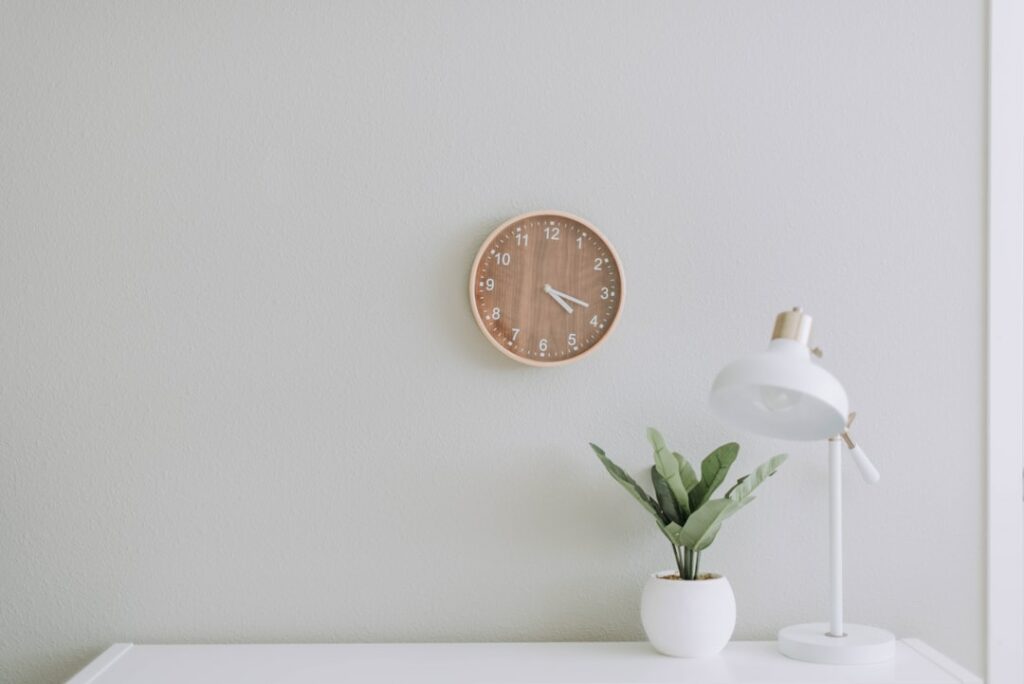Sleep hygiene is crucial for everyone, but it becomes even more important for shift workers. Shift work can disrupt sleep patterns and have negative effects on physical and mental health. In this article, we will explore the importance of sleep hygiene for shift workers and provide tips on how to establish a consistent sleep schedule, create a sleep-conducive environment, manage light exposure, regulate temperature and humidity, practice relaxation techniques, limit caffeine and alcohol intake, develop a pre-sleep routine, incorporate exercise into your schedule, and seek professional help if necessary.
Key Takeaways
- Sleep hygiene is crucial for shift workers to maintain their physical and mental health.
- Establishing a consistent sleep schedule helps regulate the body’s internal clock.
- Creating a sleep-conducive environment involves minimizing noise and distractions.
- Managing light exposure, especially blue light, can improve sleep quality.
- Regulating temperature and humidity can also contribute to a better sleep environment.
Understanding the Importance of Sleep Hygiene for Shift Workers
Shift work often involves irregular hours and rotating schedules, which can disrupt the body’s natural sleep-wake cycle. This disruption can lead to difficulty falling asleep or staying asleep, resulting in poor sleep quality. Poor sleep hygiene can have negative effects on physical and mental health. It can increase the risk of chronic conditions such as obesity, diabetes, cardiovascular disease, and mental health disorders like depression and anxiety. It can also impair cognitive function, decrease productivity, and increase the risk of accidents in the workplace.
Establishing a Consistent Sleep Schedule
Creating a regular sleep schedule is essential for shift workers to maintain good sleep hygiene. Even if your work hours are irregular, try to establish a consistent bedtime and wake-up time. This consistency helps regulate your body’s internal clock and improves sleep quality. It’s also important to prioritize sleep by allowing enough time for restful sleep. Aim for 7-9 hours of sleep per night.
To establish a consistent sleep schedule, create a routine that signals to your body that it’s time to wind down and prepare for sleep. This routine can include activities such as taking a warm bath or shower, reading a book, or practicing relaxation techniques. Avoid stimulating activities or screens before bed as they can interfere with your ability to fall asleep.
Creating a Sleep-Conducive Environment
Creating a comfortable and relaxing sleep environment is crucial for good sleep hygiene. Make sure your bedroom is cool, dark, and quiet. Use blackout curtains or an eye mask to block out any light that may interfere with your sleep. Consider using earplugs or a white noise machine to minimize noise disturbances.
Invest in a comfortable mattress and pillows that support your body and promote proper alignment. Keep your bedroom clean and clutter-free to create a peaceful atmosphere. Remove any electronic devices that emit blue light, such as smartphones or tablets, as this type of light can suppress the production of melatonin, a hormone that regulates sleep.
Managing Light Exposure
Light exposure plays a significant role in regulating our sleep-wake cycle. Exposure to natural light during the day helps keep us alert and awake, while darkness signals our body to produce melatonin and prepare for sleep. For shift workers who may be exposed to bright light during the night, managing light exposure becomes even more important.
Consider using blackout curtains or blinds to block out sunlight when you need to sleep during the day. Wear sunglasses on your way home from work to reduce exposure to bright light. Avoid using electronic devices with screens before bed as the blue light they emit can interfere with your ability to fall asleep. If you need to use screens before bed, consider using blue light filters or wearing blue light-blocking glasses.
Regulating Temperature and Humidity

The temperature and humidity levels in your bedroom can significantly impact your sleep quality. The ideal temperature for sleep is around 65 degrees Fahrenheit (18 degrees Celsius). Adjust your thermostat or use fans or air conditioning to create a cool sleeping environment. High humidity levels can make the air feel heavy and uncomfortable, leading to disrupted sleep. Use a dehumidifier if necessary to maintain optimal humidity levels.
Practicing Relaxation Techniques
Relaxation techniques can help calm the mind and prepare the body for sleep. Deep breathing exercises, progressive muscle relaxation, and meditation are all effective techniques for promoting relaxation and improving sleep quality. Incorporate these techniques into your pre-sleep routine to signal to your body that it’s time to wind down and prepare for sleep.
Limiting Caffeine and Alcohol Intake
Caffeine and alcohol can disrupt sleep patterns and should be consumed in moderation, especially before bed. Caffeine is a stimulant that can interfere with your ability to fall asleep and stay asleep. Avoid consuming caffeine at least 4-6 hours before bed. Be mindful of hidden sources of caffeine, such as chocolate or certain medications.
While alcohol may initially make you feel drowsy, it can disrupt the later stages of sleep, leading to poor sleep quality. Limit your alcohol intake and avoid consuming it close to bedtime.
Developing a Pre-Sleep Routine
A pre-sleep routine is a series of relaxing activities that you do before bed to signal to your body that it’s time to sleep. This routine can include activities such as taking a warm bath or shower, reading a book, practicing relaxation techniques, or listening to calming music. Establishing a consistent pre-sleep routine helps prepare your mind and body for sleep and improves sleep quality.
Incorporating Exercise into Your Schedule
Regular exercise has numerous benefits for overall health, including improved sleep quality. Engaging in physical activity during the day can help regulate your body’s internal clock and promote better sleep at night. Aim for at least 30 minutes of moderate-intensity exercise most days of the week. However, avoid exercising too close to bedtime as it can increase alertness and make it harder to fall asleep.
Seeking Professional Help if Necessary
If you’re consistently struggling with poor sleep despite implementing good sleep hygiene practices, it may be time to seek professional help. A healthcare provider or sleep specialist can evaluate your sleep patterns, identify any underlying sleep disorders, and provide appropriate treatment. They may recommend therapies such as cognitive-behavioral therapy for insomnia (CBT-I) or prescribe medication if necessary.
Sleep hygiene is crucial for shift workers to maintain good physical and mental health. Establishing a consistent sleep schedule, creating a sleep-conducive environment, managing light exposure, regulating temperature and humidity, practicing relaxation techniques, limiting caffeine and alcohol intake, developing a pre-sleep routine, incorporating exercise into your schedule, and seeking professional help if necessary are all important steps in improving sleep quality. By implementing these tips and prioritizing sleep, shift workers can optimize their well-being and performance in the workplace.
If you’re interested in improving your memory, you might find this article on «Techniques to Improve Your Memory» helpful. It provides practical tips and strategies to enhance your memory and cognitive abilities. Whether you’re a student looking to ace exams or simply want to remember important information more effectively, these techniques can be beneficial. Check out the article here for some valuable insights.
FAQs
What is sleep hygiene?
Sleep hygiene refers to the practices and habits that promote good quality sleep. It includes factors such as the sleep environment, bedtime routine, and lifestyle choices that can affect sleep.
What are shift workers?
Shift workers are individuals who work outside of the traditional 9-5 workday. This can include night shifts, early morning shifts, or rotating shifts that change frequently.
Why is sleep hygiene important for shift workers?
Shift workers often struggle with irregular sleep schedules, which can lead to sleep deprivation and other health issues. Practicing good sleep hygiene can help improve the quality and quantity of sleep for shift workers.
What are some sleep hygiene strategies for shift workers?
Some sleep hygiene strategies for shift workers include creating a sleep-conducive environment, establishing a consistent sleep schedule, avoiding caffeine and alcohol before bedtime, and practicing relaxation techniques.
What are some common sleep disorders that shift workers may experience?
Shift workers may be at a higher risk for sleep disorders such as insomnia, sleep apnea, and circadian rhythm disorders due to their irregular sleep schedules.
Can sleep hygiene strategies be effective for individuals with irregular sleep schedules?
Yes, sleep hygiene strategies can be effective for individuals with irregular sleep schedules, including shift workers. By establishing consistent sleep habits and creating a sleep-conducive environment, individuals can improve the quality and quantity of their sleep.





